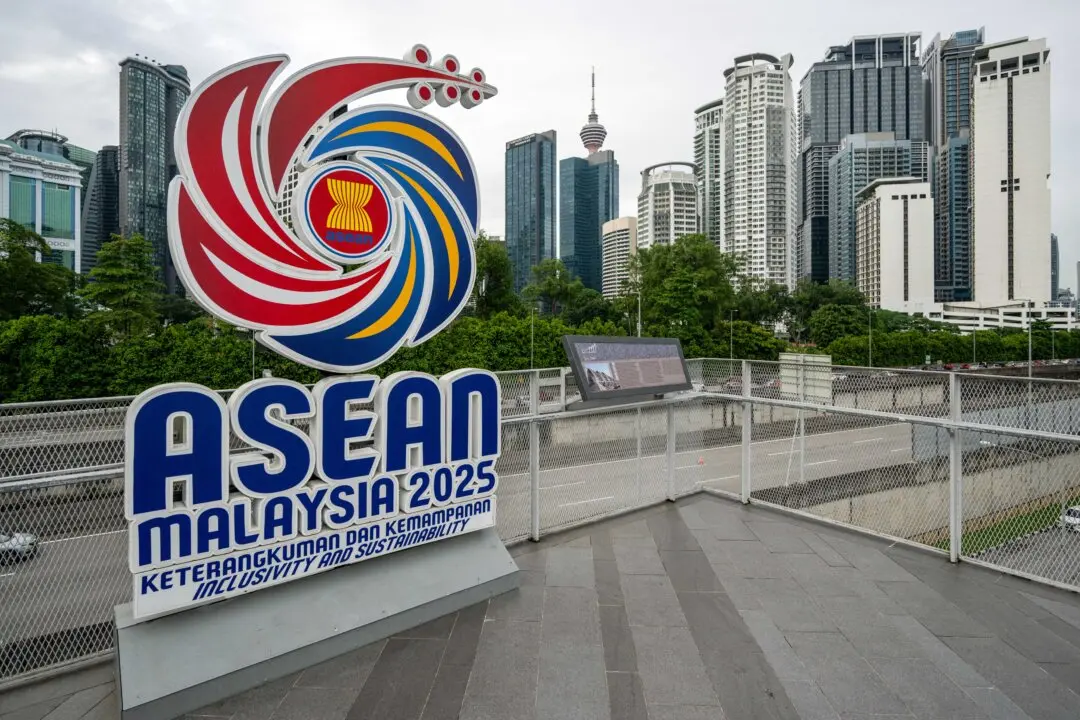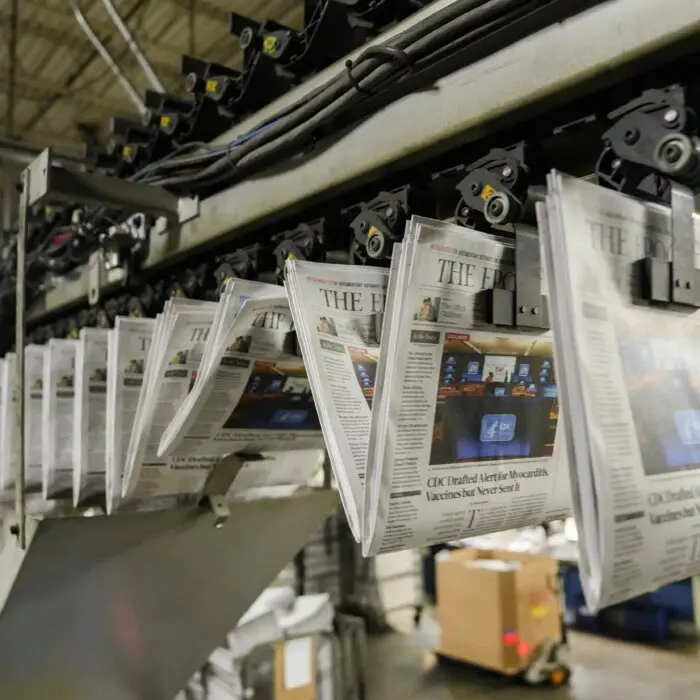As President Donald Trump toured Asia in late October, an Epoch Times reporter traveling with the White House staff encountered repeated roadblocks in accessing key press events, which fit an ongoing pattern of Chinese Communist Party (CCP) interference.
The Epoch Times, along with its sister outlet NTD, was ultimately denied access to two key press events at which world leaders gathered in late October: the Association of Southeast Asian Nations (ASEAN) Summit and the Asia-Pacific Economic Cooperation (APEC) forum.
Both summits revealed the regional power of Beijing, which signed trade pacts and pressed for stronger trade ties with nations already heavily tethered to China economically.
Before arriving in Asia, Epoch Times staff members had received pre-approved press credentials for the summits, along with other reporters.
However, The Epoch Times was the only pre-approved organization to later be denied access by summit organizers after a series of twists and turns involving communications discrepancies, employees who passed the buck, unlikely tech glitches, failed promises of press credentials, and sudden reversals of statements.
The incidents mirrored previous cases of press access denials, several of which had clear links to Beijing.
‘Hallmarks’ of Pressure Campaign
The Epoch Times is headquartered in New York City and has more than 1 million subscribers.Since its founding, the publication has been persistently targeted by the CCP, with tactics ranging from overt threats and behind-the-scenes pressure on local authorities to Chinese delegates physically blocking access.
Aleksandra Bielakowska, Asia-Pacific advocacy manager for Reporters Without Borders, said at the time of those incidents that the watchdog is “alarmed by the growing wave of harassment targeting independent media and its own staff.”
“These tactics bear the clear hallmarks of methods used by the Chinese regime, which has intensified pressure and intimidation over the past year against outlets whose reporting deviates from the official narrative,” she told The Epoch Times.
Economic Leverage, Discrepancies
China is the largest trader among APEC economies and has been the biggest trading partner for the 11-member ASEAN bloc for 16 years.Both Malaysia and South Korea, where Epoch Times reporters encountered problems with press access, have faced consistent pressure from Beijing to toe the Party line.
According to the Chinese Embassy in South Korea, Chinese officials have directly told Korean officials to block performances of Shen Yun Performing Arts, which has put the CCP’s human rights abuses in the global spotlight.
Similar pressures appear to have been brought to bear on the local summit organizers during Trump’s Asia tour.
Travis Gillmore, White House correspondent for The Epoch Times, arrived in Kuala Lumpur two days before Trump joined the ASEAN Summit to sign a flurry of deals with bloc members.
Gillmore had pre-approved media credentials.
However, when U.S. Embassy and White House staff went to retrieve the credentials for U.S. media personnel, ASEAN officials informed them that Gillmore’s profile needed updating.
Gillmore did not receive any clarification on what information was missing. And his previously provided QR code—a temporary placeholder for his credentials—mysteriously disappeared. He could find no option online to update his profile. Hours of negotiation with the ASEAN media desk yielded no breakthroughs.
Gillmore said he repeatedly found himself in the same cycle: He was told to come back and pick up the press pass later, only to find nothing when he returned.
Among other irregularities was a later-deleted WhatsApp message he received at about 6:30 p.m. on Oct. 25, telling Gillmore to pick up credentials the following day. The sender, with the name AD, deleted the message in the middle of the night. When Gillmore showed up early next morning, ASEAN staff had no pass for him, saying that what had happened was a “miscommunication.”
“I saw ‘Travis’ and thought it was you, so I sent the message, but it must have been a different Travis,” an ASEAN staff member, who identified herself as Fatika, told Gillmore.
When asked about the discrepancies, Fatika said the situation was unprecedented and did not elaborate.
Gillmore asked whether there was any CCP pressure influencing the decisions. The staff member replied that he should apply pressure “from the top down” to resolve the issue.
There were many other unexplained discrepancies.
On Oct. 26, ASEAN staff told Gillmore that his press pass had been approved. Twice that day and the next day, they said they were printing the documents.
But the credentials never materialized, and ASEAN officials did not respond to Gillmore’s repeated calls and emails.
Epoch Times White House correspondent Mari Otsu and NTD videographer Chen Lei faced a similar situation when they arrived at their hotel in Gyeongju, South Korea, ahead of the APEC summit.
Inside the hotel, a reserved media table at the press filing center bore the NTD logo. Despite this, APEC staff members restricted access for Otsu and Chen and said they did not have the pair’s credentials.
The media liaison team blamed a “mix-up” for what happened. Later, they told Otsu that they had found her media pass, only to walk back the statement within minutes, saying that the earlier message had been “sent in error.”
APEC and ASEAN did not respond to requests for comment.







